Read on to learn more about some successfully funded projects completed in the last few years.
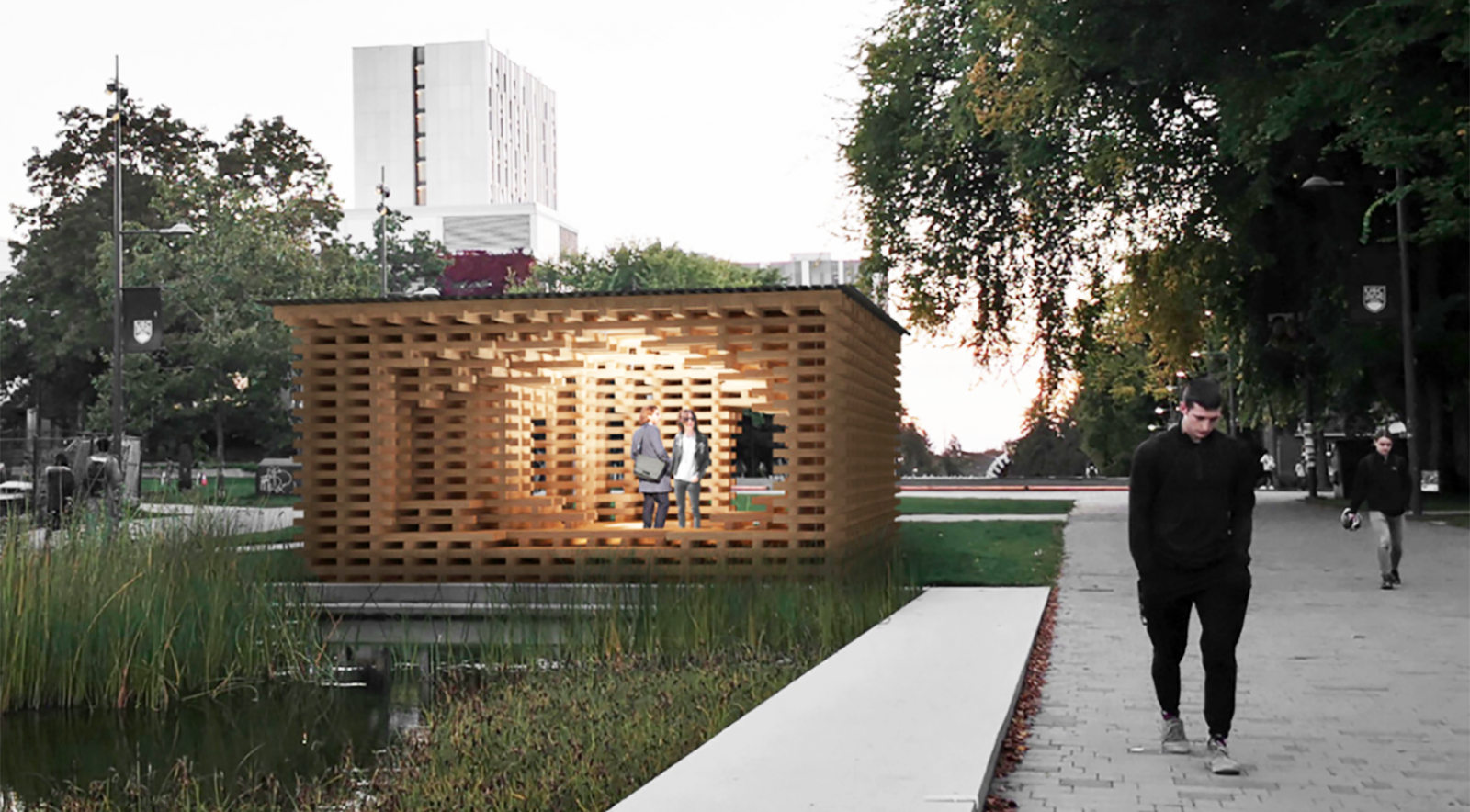
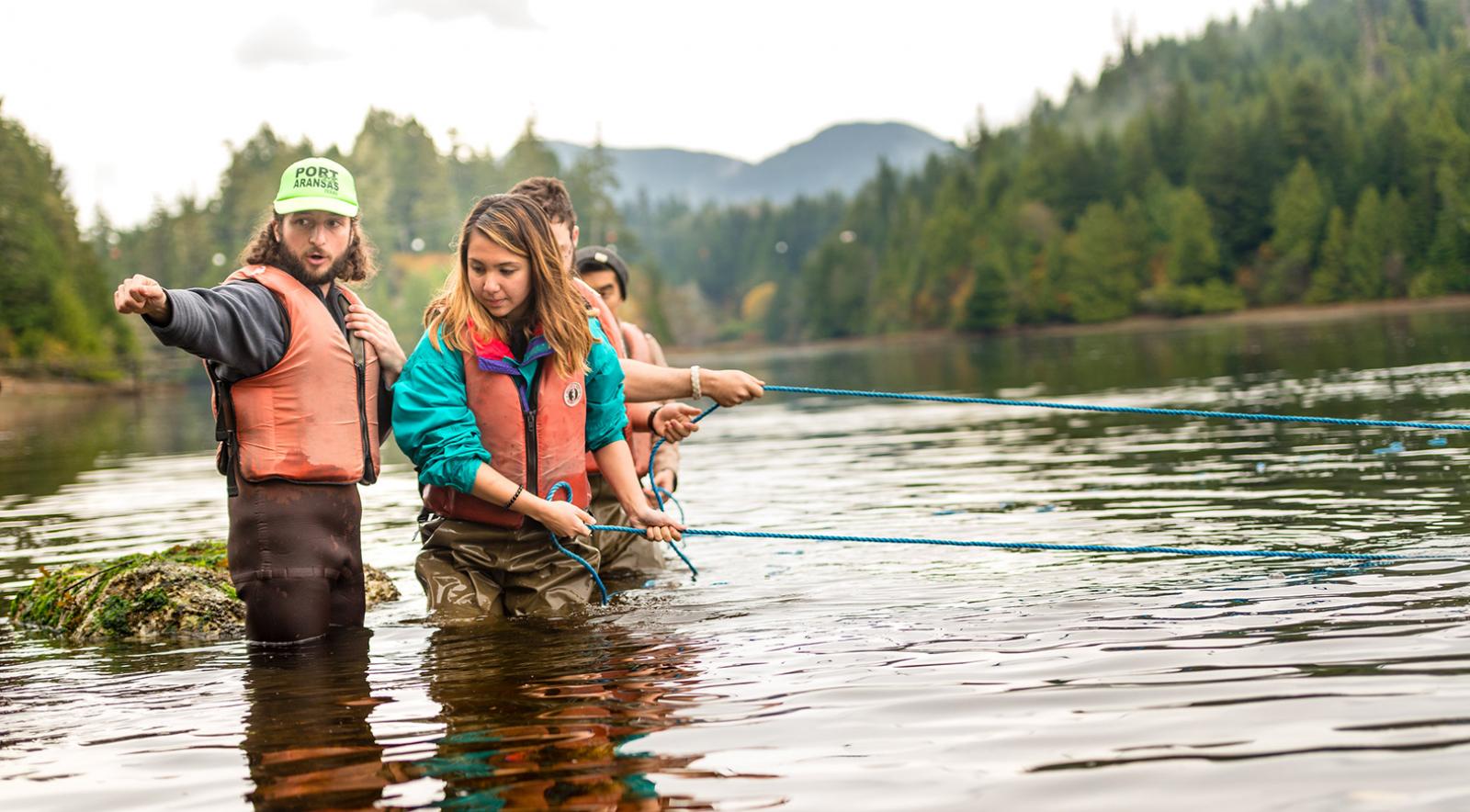

UBC Sustainability Curriculum Project Compendium
Learn more about some of the interdisciplinary teaching and curriculum innovation projects the Sustainability Hub has supported in recent years through the Sustainability Education Fellows program, Climate Education Grants and Climate and Wellbeing Education Grants.
2022-23 Projects
Sustainable Cities Certificate
Project leads: James Connolly and Melissa McHale
Grant duration:
Curriculum outcome: New interdisciplinary undergraduate certificate
Project Summary
The goal of the Sustainable Cities Certificate - A New Undergraduate Accreditation Program for Aspiring Pracademics and Urban Sustainability Professionals is to create an undergraduate certificate that helps students from various majors such as engineering, planning, architecture, forestry, and geography to work across disciplines and prepare for careers in fields like urban planning, urban hydrology, city forestry, and transportation engineering. It will focus on core sustainability principles, creating pracademics who apply scientific knowledge to urban solutions.
Sustainability Education Fellows Program
Project leads: Maggie Low and Allison Earl
Grant duration:
Curriculum outcome: Three modules were developed about system thinking and planning
Project Summary
With this grant, three modules were developed about system thinking and planning to introduce students to think about the issues that we’re facing particularly in planning with a more holistic lens focused on broader issues of sustainability.
Community Climate Hacks project
Project leads: Rob Kozak and Stephen Sheppard
Grant duration: 2 years
Curriculum outcome: Interdisciplinary field course on community engagement for Urban Forestry and Wood Science students.
Project Summary
The Community Climate Hacks project aims to develop an interdisciplinary field course on community engagement where Urban Forestry and Wood Science students will work together to help local residents and youth design and install small climate action projects, to tackle the climate emergency in their own neighbourhoods. We will co-design and test a pilot 3-credit field course as a proof of concept for future course offerings aimed initially at 3rd/4th year students from the Bachelor of Urban Forestry and the Bachelor of Wood Products Processing programs.
The course will:
- Provide students with a unique educational opportunity to apply their knowledge on nature-based solutions and sustainable wood construction in the real world, with guidance from instructors and practitioners, and learn first-hand about community engagement on climate action.
- Focus on vulnerable, less affluent neighbourhoods with low tree canopy levels, in order to help climate-proof communities while sequestering carbon, reducing food miles, and conserving water and materials.
- Engage students in cross-disciplinary experiential learning, working together to empower local residents in designing and installing beneficial, highly visible micro-projects that can inspire others (eg. tree planting, food gardens, rain gardens, small shade structures), in both private yards and public boulevards.
Climate Studies and Action Certificate
Project leads: Jessica Dempsey and Tara Ivanochko
Grant duration: 2 years
Curriculum outcome: New interdisciplinary climate certificate for UBC undergraduate students
Project Summary
Students are hungry for climate-related courses and they want to immerse themselves in problem identification and solution building. This is evidenced by the popularity of the climate strikes over the past year – many of which were youth-organized – and we believe this interest will increase among incoming students over the coming decade. While there are faculty responding to this interest through climate-related research and teaching, these efforts are dispersed across different faculties and departments at the Vancouver Campus.
This project will bring together students, faculty and staff, focusing on climate change to develop a new 18-credit interdisciplinary climate themed certificate. An interdisciplinary working group will be struck to create innovative and interdisciplinary climate studies/science option(s) at UBC, and to determine the courses required. Learning outcomes and graduate attributes for the final option(s) will be developed and broad consultation will inform a well-resourced and integrated education experience. The certificate will feature 2 new introductory courses (Climate Emergency and Climate Justice), a series of 3, 1-credit Climate Action Labs and a Climate Action Capstone course. Curriculum documents are currently under review by the Faculty of Arts with anticipated first offerings in September 2022.
2020-21 Projects
Environmental Literacy
Project leads: Derek Gladwin and Kedrick James
Grant duration: 1 year
Curriculum outcome: New Environmental Literacy course
Project Summary
This project aims to develop a new environmental literacy course for teacher candidates in the Bachelor of Education Program (B.Ed.) and graduate students in the Language and Literacy Education Department (LLED). Building on the mandate of the Ministry of Education in British Columbia to prioritize environmental curriculum in elementary and secondary education, this new course will provide future teachers with a working knowledge of theories and practices that position literacy from an environmental and ecological perspective.
Bridging natural and virtual ecologies across a range of disciplines, this course will give students the opportunity to explore personal and research-based relationships to a variety of information environments. It will also develop ecological approaches to literacy teaching and research that emphasize sustainability and the creative potential for ecological education rooted in lived experiences.
Urban Planning, Architecture and Indigenous Community Planning in the Context of Sustainability
Project leads: Allison Earl and Maggie Low
Grant duration: 2 years
Curriculum outcome: Three new course modules for the Teacher Education Program
Project Summary
In 2018, the Education for Sustainability Cohort was launched in the Teacher Education Program at UBC. Since its launch, full cohorts of 36 teacher candidates have experienced and contributed to this innovative program and demonstrated that school districts, community partners, and pre-service teachers alike are hungry for a focus on sustainability in education.
In an effort to continuously improve this program, we will develop three new course modules focused on sustainable urban architecture, urban planning and participatory planning pedagogy, and Indigenous community planning. The modules will be designed and piloted through courses in the Teacher Education Program in year 1. With lessons learned through evaluation of the pilot, the modules will be enhanced, adapted, and applied to other UBC programs, courses, and audiences in year 2. The resulting modules will represent a unique merger of architecture, planning, and Indigeneity in the context of exploring sustainability, and have a lasting impact in multiple Faculties and programs at UBC and beyond.
2019-20 Projects
Climate Theatre
Project leads: Kathy Harrison and Tom Scholte
Grant duration: 1 year
Curriculum outcome: New Climate Theatre course for upper year undergraduates
Project Summary
Canadians' attitudes toward climate science and policy are increasingly divided by age, region, and political party. The divide has widened as citizens turn from reliance on shared mainstream media to social media, which delivers messaging concerning climate science, economics, and policy targeted to different communities. As climate action becomes more urgent, Canadians are increasingly speaking past each other on climate change-related subjects such as- carbon taxes, pipelines, divestment, LNG, and a proposed "green new deal."
Creative and performing arts have the potential to bridge the gap by reaching new audiences and engaging with emotions, imagination, and intellect. Interaction among students from performing arts, science, and social sciences offers transformative potential to learn from one another. We seek to develop a 400-level course in which students learn about climate policy debates, develop and stage interactive plays about climate conflict, and reflect on personal and audience experiences.
The course will be co-taught by Tom Scholte – a Theatre and Film professor who has extensive experience with interactive theatre – and Kathryn Harrison – a Political Science professor who has studied and taught about climate policy for decades. As part of the program, students from across Faculties with some background in either theatre or climate policy will stage performances for their class and UBC community, while exploring opportunities to create intergenerational dialogue through these performances.
Rethinking Sustainability in the Anthropocene
Project leads: Michele Koppes and Juanita Sundberg
Grant duration: 2 years
Curriculum outcome: New course on Rethinking Sustainability in the Anthropocene
Project Summary
Humanity is now changing the planet at a global level and at an increasingly faster pace. While the Anthropocene provides a powerful lens through which to study human‐environment relations, this lens is not transparent or neutral. Scholars, institutions, and activists from the Global North have shaped discussions, especially in regards to sustainable futures. An awareness of how such geographical and social filters shape knowledge production is essential for acting ethically and effectively in response to the challenges confronting the planet.
The proposed project brings together Michele Koppes – a natural scientist – and Juanita Sundberg – a social scientist – with the aim to create a forum for students and faculty to consider interdisciplinary perspectives in an upper-level undergraduate and graduate seminar dedicated to rethinking sustainability in the Anthropocene. Participating students will be equipped with tools to think carefully and critically about concepts and methods of analysis involved in their disciplines and how these shape their research questions and knowledge production. The seminar will support the formation of a research cluster at UBC by inviting interested faculty from across the university community to join as guests, creating the potential for valuable synergies. Given that issues in this era of rapid global change are interdisciplinary in nature, student (and faculty) interest is anticipated from a variety of Faculties, including the Arts, Science, and Applied Science.
Collaborative technology for interdisciplinary sustainability education
Project leads: Amanda Giang and Naomi Zimmerman
Grant duration: 1 year
Curriculum outcome: Linking two existing courses for interdisciplinary sustainability education
Project Summary
Given that effective response to broad societal challenges – including providing sustainable energy systems, improving air quality, and mitigating climate change – requires interdisciplinary thinking and teams, it is critical that coursework in these areas provide interdisciplinary training. However, interdisciplinary education tools are often difficult to scale in large classes and are not easily transferred to new courses. This project aims to use technology to facilitate cross-faculty discussions, through an online and interactive student presentation toolkit and assignments, reserving in-class time for discussions of group presentation content.
To pilot this approach, two technologies will be introduced into two existing UBC courses: MECH 410U (Air Pollution, Technology, and Society) and ENVR 410 (Energy, Environment and Society). The first technology is a UBC Blogs space for students to discuss course content. As MECH 410U and ENVR 410 are primarily for Applied Science and Science students, respectively, this space will help students explore their unique perspectives based on the specifics of courses (energy vs. air pollution) and their foundational training. The second technology is a toolkit of resources for students to create online, interactive presentations to view prior to class, creating time in class for discussions. Technologies will be piloted first in MECH 410U, followed by ENVR 410 and results will be summarized and shared with sustainability educators at UBC and across the Canadian Engineering Education community, once the study is completed.
Gender, Health, and Wicked Problems
Project leads: Farah Shroff and Bob Woollard
Grant duration: 2 years
Curriculum outcome: New course on sustainability and health open to all students
Project Summary
This course will explore root causes of health and illness while pointing to solutions for better individual and community health, by focusing on Health for All and how students can be part of local and global efforts to improve health for people and the planet. Sometimes framed as One Health or EcoHealth, this work involves community members, agriculturalists, clinicians, policy makers, and academics, among others. The course will introduce students to these concepts and demonstrate how accountability and action are required at scales from the personal, to local and provincial, to national and global, to enhance the wellbeing of all. The importance of intersectoral engagement in approaching meaningful change at all scales will be a key learning objective.
Involving students from all faculties in this interdisciplinary course will likely result in rich collaborations that foster deep engagement and listening. It is a rare opportunity to illustrate the benefits of intersectoral dimensions of problem solving while emphasizing the diversity required to address complex problems. Using a flipped classroom teaching approach, creative, active, and andragogigal techniques will be used to engage students, with an intent to inspire and focus their skills to improve health for themselves, others, and the planet. Given that many students experience anxiety and depression due to various stressors and pressures – including the climate crises – practicing self-care might encourage greater mental wellbeing and be more motivation to take sustainable action.
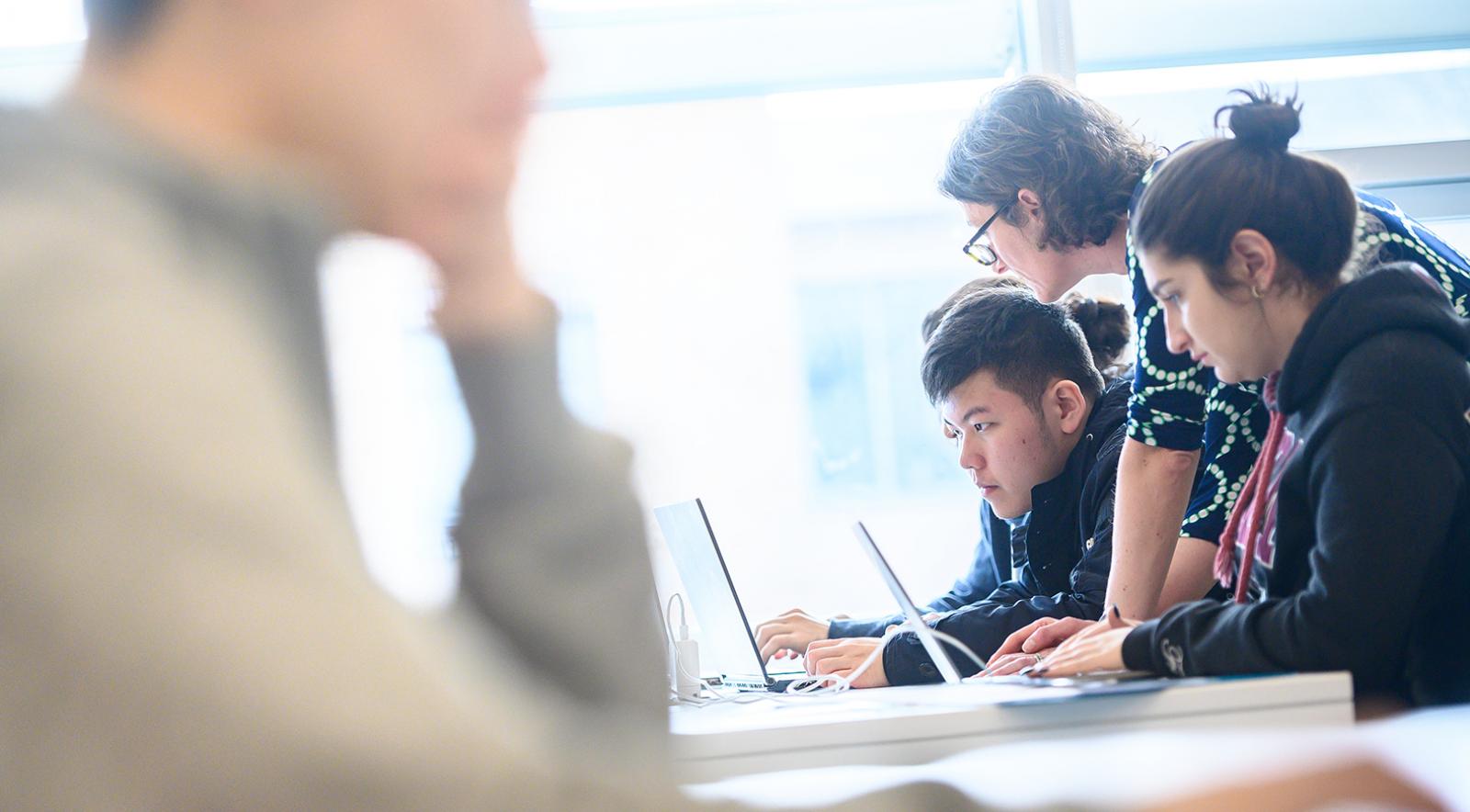
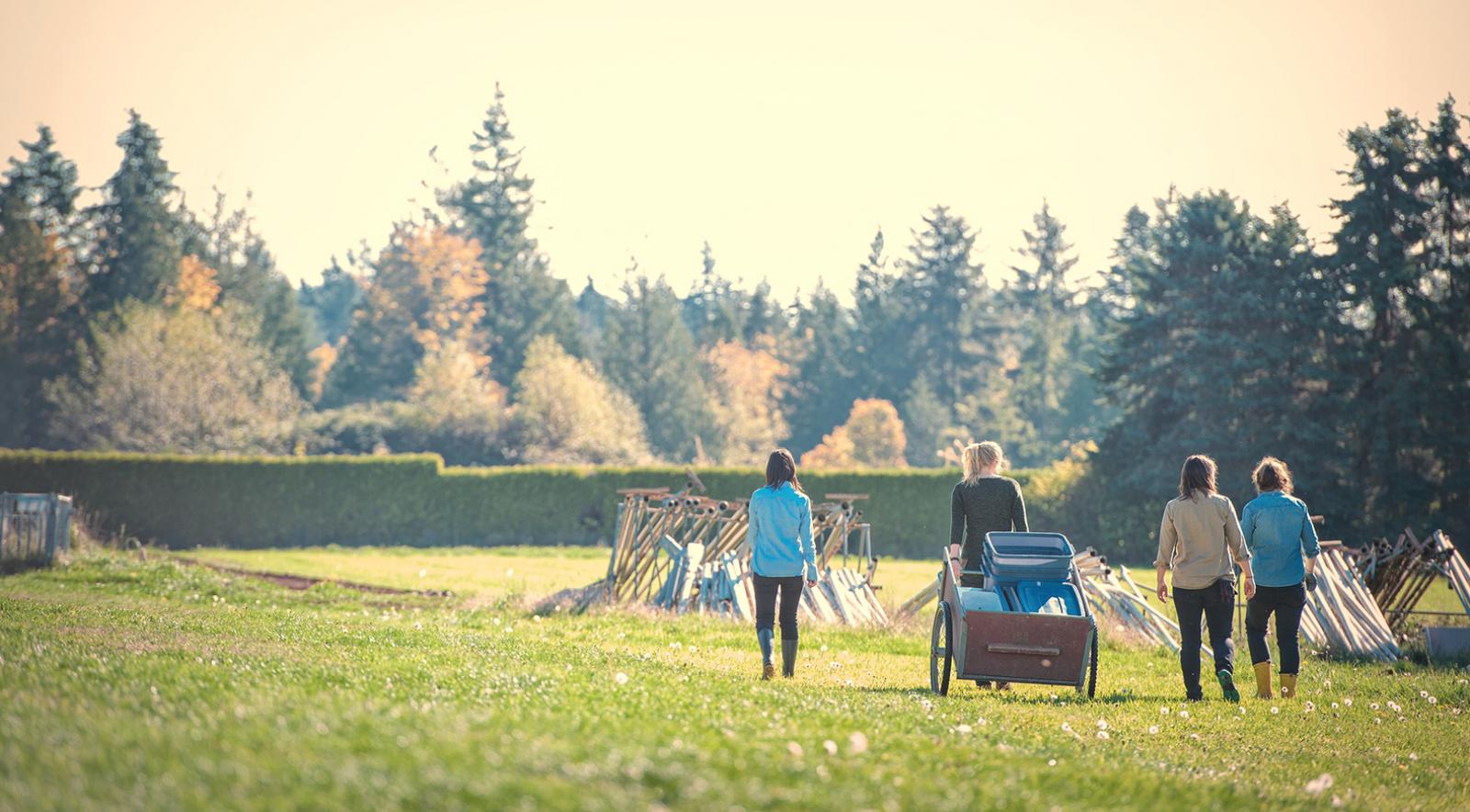
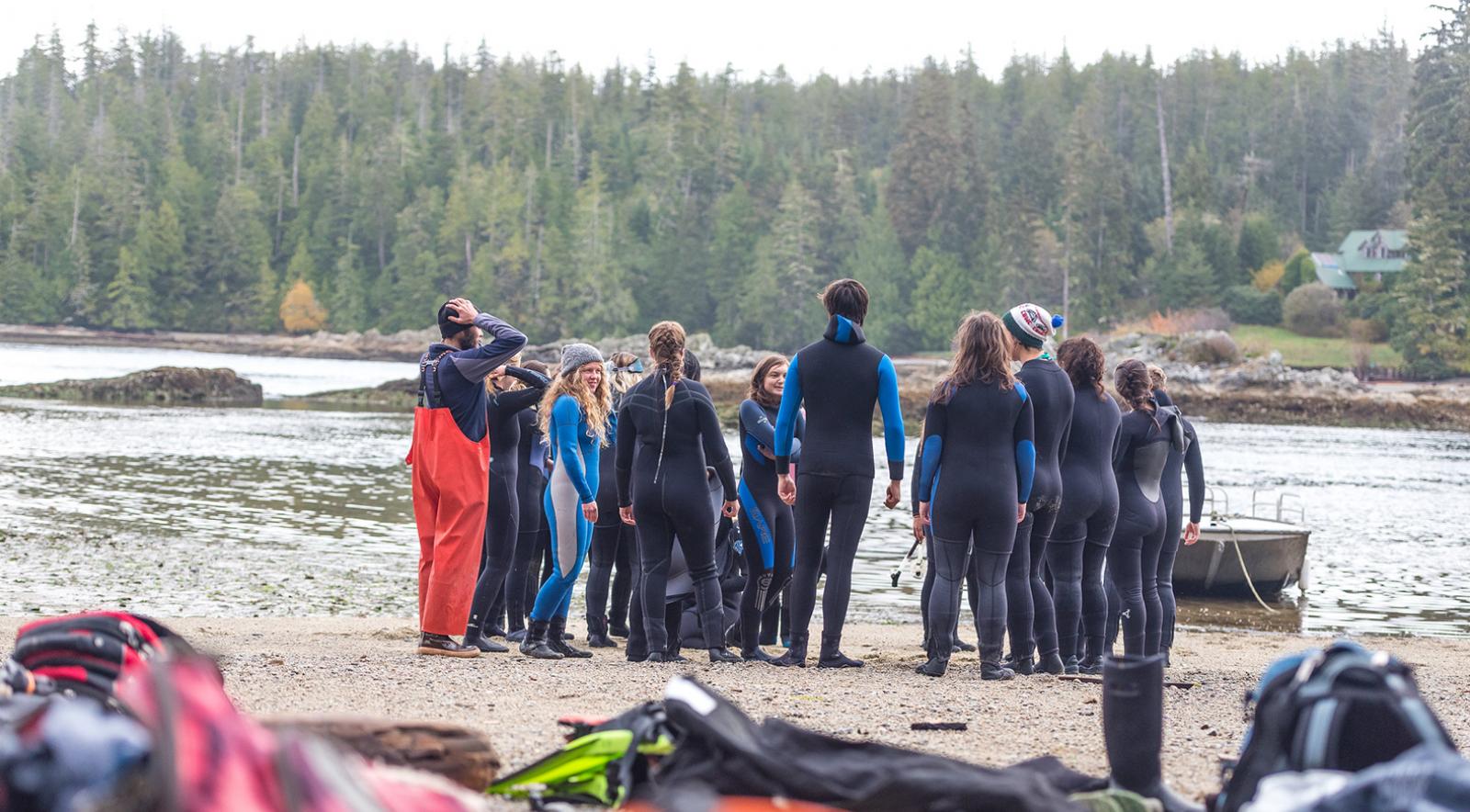
2018-19 Projects
EarthCARE Sustainability Residency
Project leads: Will Valley and Vanessa Andreotti
Grant duration: 2 years
Curriculum outcome: New field course for Education and Land and Food Systems students
Project Summary
EarthCARE is a framework for transformative global justice that focuses on the ecological, economic, cognitive, affective, and relational aspects of sustainability. The framework was created by an international network of 30+ social-ecological Indigenous and non-Indigenous initiatives located in 20 countries, with a strong focus on Latin America.
This framework is intended to push the boundaries of prevailing approaches to sustainability that tend to focus on “doing things differently” (i.e. a methodological focus) rather than being/existing differently (i.e. an ontological focus). When “being” is overlooked, sustainability approaches tend to promote simplistic understandings of global problems and solutions, paternalistic and tokenistic notions of inclusion, and ethnocentric views of justice and change. The EarthCARE network supports the design of deep learning processes that can enable CARE-ful learners to think, relate, and work together differently to alleviate the effects and transform the root causes of unprecedented global challenges.
This residency will be offered to both graduate and undergraduate students from the Faculties of Education and Land and Food Systems. Undergraduate and graduate students will have different assignments and course loads. Participants will spend seven days camping in BC, learning from local and international sustainability leaders from communities who have historically fought to protect their land, water, food security, language, and alternative systems of education. The course will push the edges of what is possible in experiential sustainability education by moving beyond “problem-solving” to deepening analyses and developing students’ stamina to navigate contexts that are complex, uncertain, diverse, and unequal.
Environmental Humanities and Sustainability Education
Project leads: Alex Dick and Derek Gladwin
Grant duration: 2 years
Curriculum outcome: New course (online and on campus versions)
Project Summary
This project will develop an undergraduate course delivered both in the classroom and online titled Environmental Humanities and Sustainability Education – linking the Faculties of Education and Arts at UBC. The environmental humanities have arisen out of a global movement initiated by philosophers, critics, students, artists, writers, and scholars in multiple disciplines and communities to address global ecological transitions and futures from a broadly humanistic perspective. Work in the environmental humanities examines the relationship between humanist thinking and artistic production through sustainable social action.
The first of its kind in Canada, this course will contextualize the environmental humanities within sustainability education, drawing on interdisciplinary models and using educational and arts-based pedagogies. Bringing the humanities and arts-based education into focus, this course will alert students to issues related to environmental education, ecological and social sustainability, social justice, and energy futures.
Humanitarian Engineering – Politics and Practice
Project leads: Gabriel Potvin and Jenny Peterson
Grant duration: 1 year
Curriculum outcome: New third year course for Applied Science and Arts students
Project Summary
This project will create an innovative, interdisciplinary course that brings together political science/international relations and engineering students to explore the application of technical engineering solutions to humanitarian issues. This will be explored in the political, social, economic, and environmental sustainability context. This project-based course will have students working in interdisciplinary teams to develop tangible, sustainable solutions to some of the world’s most challenging humanitarian dilemmas.
From multiple fields, course development endeavours to integrate best practices in project-based and design education, and challenges students to engage in relevant, complex concepts that are important, but usually not part of their respective disciplinary curricula or only explored through disciplinary lenses. Students will broaden their approach to problem-solving and sustainability in a collaborative interdisciplinary setting, informed by the latest developments in humanitarian engineering. This course will be unique at UBC and will allow students to develop the multidisciplinary skills and global mindset that are increasingly demanded by employers and organizations across all fields.
Platform for Local Materials Ecology
Project leads: Joe Dahmen and Gerry Pratt
Grant duration: 1 year
Curriculum outcome: Revision of two courses (SALA 544 & GOEG 371)
Project Summary
The Platform for Local Material Ecologies will provide a contemplation space at the center of the UBC campus for reflection and meditation. The project, which will be designed and built by students from UBC SALA (Applied Science) and Geography (Arts) will provide opportunities for students to engage in integrative, problem-based learning across disciplines. The space will provide a place to relax that is sheltered from the elements and is connected to – but apart from – the everyday activities of the campus. Sounds from various environments on campus (water, bird songs, human activity) conducive to meditation or related contemplative activities will be played at low volume in the pavilion via speakers.
Students will work with a visiting sound artist who will be in residence during Fall 2018 to develop acoustical programming for the installation that accentuates connections between local materials and ecologies. The sustainable pavilion will be designed and fabricated by students from waste or materials borrowed from resource streams on the UBC campus that will be returned when the project ends. It will be zero waste and zero energy, with maintenance and decommissioning considered as an integral part of design and all power required for operation generated on site. The installation will yield positive interdisciplinary learning outcomes during the design and construction phases, and enhance mental health and well-being of the UBC community by using multiple senses.
Integrating Case-based Learning into the Interdisciplinary Design of Sustainable Energy Systems in ENVR 410
Project leads: Amanda Giang and Terry Satterfield
Grant duration: 1 year
Curriculum outcome: Revision of an existing course (ENVR 410)
Project Summary
Transforming energy systems to be more environmentally sustainable, socially just, and affordable for all is a key challenge for the 21st century. Understanding the linkages between the technological, social, and environmental dimensions of energy systems to support these transitions is a core interdisciplinary learning objective for all students enrolled in ENVR 410 (Energy, Environment, and Society). Originally developed with the support of the USI, ENVR 410 is a fourth-year elective for Science and Applied Science students that fulfills requirements for the Environmental Sciences (ENVR) specialization in the Department of Earth, Ocean, and Atmospheric Sciences.
This project will update the course to engage Environmental Engineering students, in addition to those from ENVR. To achieve our interdisciplinary learning goals, we will develop six new case studies examining contemporary local and global energy debates. These will become the backbone for the updated course. Case studies have been identified as a particularly promising approach for promoting cognitive and affective learning about sustainability challenges, because of their real-world and problem-based nature.
Global Reporting Program
Project leads: Peter Klein and Simon Donner
Grant duration: 1 year
Curriculum outcome: Revision of a 6 credit course (JOUR 555A)
Project Summary
International Reporting (JOUR 555A) is a two-term, six-credit course at UBC’s Graduate School of Journalism. In the 2018/19 academic year, the course will be transformed into the Global Reporting Program, by bringing together UBC graduate students from several disciplines, to work with students at universities worldwide. The goal is for students to study the challenges of reporting on sustainability and produce a collaborative journalism project and academic investigation into marine supply chains.
Journalism students will work collaboratively with marine-focused graduate fellows in UBC’s “Training our Future Ocean Leaders” program, who will be investigating how to translate knowledge about global supply chains into management and policy change in Canada through the program’s concurrent two-credit course FISH 507 “Grand Challenges in Ocean Leadership.” The teams will employ an interdisciplinary lens to develop a more nuanced understanding and analysis of fisheries and sustainability within the industry, aided by the knowledge these students bring from their respective field of study.
